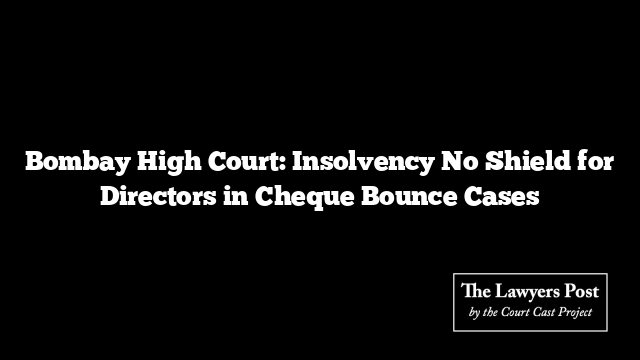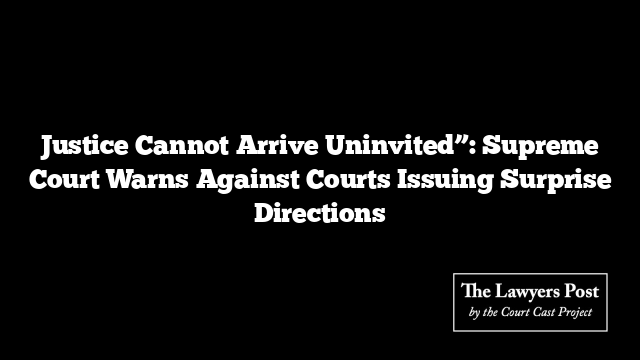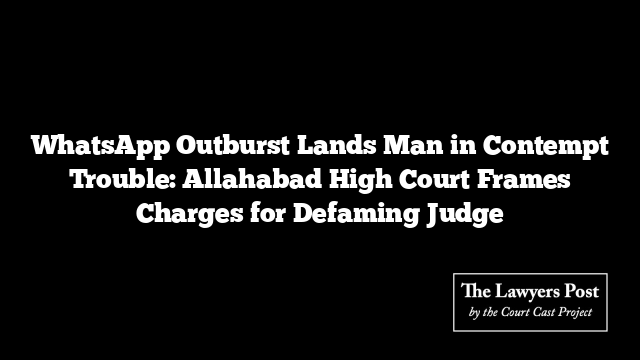In a significant ruling, the Bombay High Court declared that directors cannot escape criminal prosecution for dishonoured cheques merely because their company is undergoing insolvency proceedings. The Court emphasised that while a corporate debtor enjoys protection under the Insolvency and Bankruptcy Code (IBC), the personal liability of its directors and signatories under the Negotiable Instruments Act (NI Act) remains intact.
Justice MM Nerlikar of the Nagpur Bench delivered the decision in a case involving Ortho Relief Hospital and Research Centre v. Anand Distilleries, underscoring that insolvency cannot become a legal refuge for individual wrongdoing.
“The directors of a company remain answerable under Section 138 of the NI Act, even if the company’s debt stands resolved under the IBC,” the Court held, making it clear that the statutory protection under Section 32A of the IBC applies only to the corporate entity and not its officers.
The case stemmed from a 2015 transaction in which Anand Distilleries, through its directors Abhaykumar and Anandkumar Bhambore, borrowed ₹15 lakh from Ortho Relief Hospital. A post-dated cheque was issued as security but later bounced due to insufficient funds. Though insolvency proceedings against the company began in 2018, the hospital lodged a criminal complaint in 2019 after non-payment despite due notice.
A lower court had discharged the directors, citing the pending insolvency process, but the High Court reversed this decision. Justice Nerlikar termed the trial court’s approach a “gross error,” stressing that cheque bounce cases are not civil recovery actions but criminal proceedings designed to preserve the credibility of commercial transactions.
Citing multiple Supreme Court precedents, including P Mohanraj v. Shah Brothers Ispat Pvt Ltd and Ajay Goenka v. TFCI, the High Court reiterated that while Section 14 of the IBC halts actions against the company, it does not extend to individuals responsible for its operations.
Once a cheque is dishonoured and a statutory notice goes unheeded, the Court clarified, directors cannot hide behind the subsequent liquidation of the company to avoid liability.
Finding the trial court’s discharge orders unsustainable, the High Court reinstated the complaint for prosecution, observing that the lower court had ignored well-settled legal principles.





